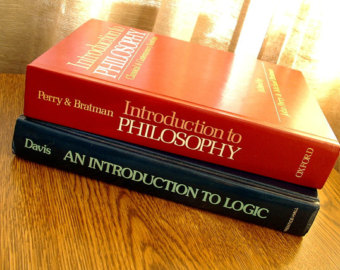Over at Friendly Atheist, there’s a trailer for a terrible looking Christian movie, where a noble Christian student stands up to his bullying atheist philosophy professor who begins the semester by essentially asking telling his students that they’ll need to disavow religion in order to pass. Cue the intense stares, montages, lazy apologetics, and guest appearance by a Christian rock band.
Hemant Mehta titled his post “This Must Be What Christian Apologists Think A College Philosophy Class Is Like.” I think he’s probably right, at least for a certain subset of isolated Christians, who have read about atheists on the internet, but still don’t know any in person. Almost no professors behave this way, especially as all you’d be teaching your students is to pander to you, not to change their worldview.
But there is a tendency in philosophy classes (at least some that I’ve taken) that should concern Christians and probably atheists as well. In my one year philosophy survey (Plato to Wittgenstein, courtesy of Directed Studies – possibly the best decision I made at Yale), we spent a reasonable amount of time tackling proofs for the existence of God. We read Anselm and Augustine and Aquinas.
A class full of students being led through theology by a professor who wants to make sure they grasp the basic argument and then the reasons people objected might sound like exactly what the makers of that movie feared. But, in a bunch of the philosophy sections, there was no soaring music or dramatic confrontations.
A reasonable proportion of the professors covered philosophy the way people imagine organic chemistry is taught: a lengthy list of obscure facts to memorize, along with their relationships to each other, for use in some later class or practice. Second term of Directed Studies, I had a much drier professor who never asked us if we planned to live differently after reading Hegel, or even, in the abstract, what we’d have to give up or change if we found him compelling. The papers I wrote that term were much more book report-y.
But I was lucky enough to have Professor Andre Willis (on loan from the Div School) who would go over our reading in Epictetus’s Handbook, make sure we understood the material, and then would ask. “So… Stoicism. Would you do it?”
(Cue freshman-Leah throwing her hand into the air, saying “Of course! How could you allow your mind to be corrupted by the demands of your body? And why would you indulge yourself being uselessly sad about things you can’t control? How wasteful!” and surprising the heck out of her classmates).
Professor Willis treated every piece of reading we had assigned as a live question. If we thought the arguments or rebuttals were compelling, we might well walk out of the class with a new way to live. We weren’t storing up information against some future exam; we were bringing in test cases from our own lives as well as from the readings. I can certainly imagine Professor Willis’s class being a threat to a student’s faith, or another’s atheism, or a third’s deontology of any stripe. He did us the courtesy of treating philosophy as high stakes.
It should be much more jarring for a Christian student to sit in a room full of students and a professor who treat philosophical questions about the existence of God as purely abstract and low-key than to be the student of the angry professor in the film. The character is clearly disrespectful of his students, shouting them down and threatening them, but he at least is respectful of his field, and believes the ideas he teaches have normative consequences.













